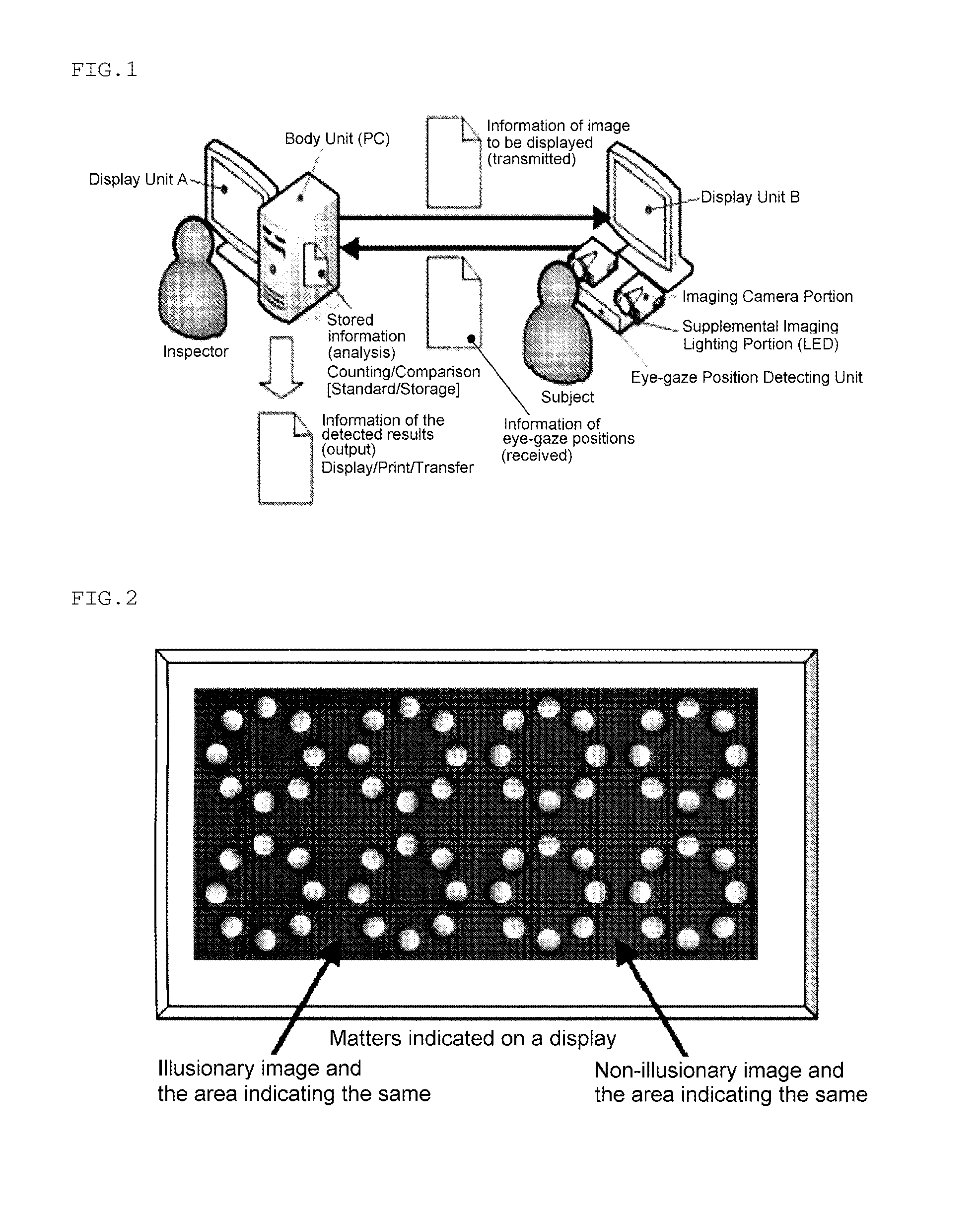Method, system and device for assisting diagnosis of autism
a technology for autism and diagnosis, applied in the field of autism diagnosis and diagnosis, can solve the problems of lowering self-esteem and developing psychiatric symptoms, undiscovered effective autism medication, and difficulty in making sure early diagnosis of autism with standard clinical techniqu
- Summary
- Abstract
- Description
- Claims
- Application Information
AI Technical Summary
Benefits of technology
Problems solved by technology
Method used
Image
Examples
example 1
[0309]In accordance with the above-mentioned flow of eve-gaze detection in the present specification, each of one typically developing individual (typically developing child, 7-years old) and one individual with autism (child with autism, 7-years old) was subjected to the eye-gaze detection examination using the system for assisting diagnosis of autism with steps I to IV.
[0310]More specifically, the plane of an illusion-causing image shown in FIG. 3 (with one set of 4 rings positioned in the left half of the image which causes optic illusion and another set of 4 rings positioned in the right half of the image which causes no optic illusion) was shown on a display of a personal computer in accordance with a signal from the doctor to start the eye-gaze detection. This plane was displayed to the above-mentioned two subjects (one typically developing individual and one individual with autism) for six seconds. As a result, the results of evaluation of the eye-gaze positions (containing t...
PUM
 Login to View More
Login to View More Abstract
Description
Claims
Application Information
 Login to View More
Login to View More - R&D
- Intellectual Property
- Life Sciences
- Materials
- Tech Scout
- Unparalleled Data Quality
- Higher Quality Content
- 60% Fewer Hallucinations
Browse by: Latest US Patents, China's latest patents, Technical Efficacy Thesaurus, Application Domain, Technology Topic, Popular Technical Reports.
© 2025 PatSnap. All rights reserved.Legal|Privacy policy|Modern Slavery Act Transparency Statement|Sitemap|About US| Contact US: help@patsnap.com



